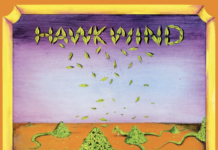Canadian dance-punk duo Death From Above 1979’s first decade as a band was characterised by a promising EP, a wildly successful debut and then an explosive breakup. Since reforming in 2011, the second decade of their existence has been much more stable, resulting in two further albums. While they aren’t the first band to break up and come back, few bands make it to three albums post-comeback and retain or even grow their profile. While die-hards may still take the first album over everything else, Is 4 Lovers makes a very strong addition to DFA’s latter-period oeuvre.
The album is front-loaded with a barrage of sing-along tracks, the first three sure to make their way into the live set. ‘Modern Guy’ gallops along with a guitarist Jesse Keeler’s spidery riff, ‘One + One’ builds out of a disjointed, patchwork groove to an addictive pulse, and ‘Free Animal’ is a classic DFA headbanger.
From there, the album pushes into slightly less explored territory. ‘NYC Power Elite’ takes very clear aim at the upper echelons of New York society, and the sentiment is strong enough to warrant two parts. The first part is more straightforward while part II is a feedback-laden riff out, vocals distorted beyond comprehension, and one of the wilder moments of the record.
‘Totally Wiped Out’ bears more than just name resemblance to The Fall’s ‘Totally Wired’, leaning strongly into DFA’s post-punk influences. This is immediately followed up with ‘Glass Homes’, focusing heavily on the synth elements of their sound and owing a lot to bands like Daft Punk.
‘No War’ is probably the only weak moment on the record, its slow pace leaving the album on a bit of an anti-climax. The push-pull of ‘Mean Streets’ would have been a much better way to close the album out, especially with its anthemic guitar lines contrasting with softer piano.
Drummer/Vocalist Sebastien Grainger has been open in interviews about the themes of this record – Lead single ‘One + One’ describing his relationship to his newborn child, and ‘Love Letter’ being a very literal title. Despite the more wholesome intentions of the album, Death From Above have not lost their edge. The thick, fuzzy guitars that have always characterised them sound better than ever here, sounding at points like the riffs have been sculpted out of an elemental distortion soup. Is 4 Lovers is as good as any DFA album before it, and shows the remarkable consistency of the Keeler/Grainger creative partnership.


















